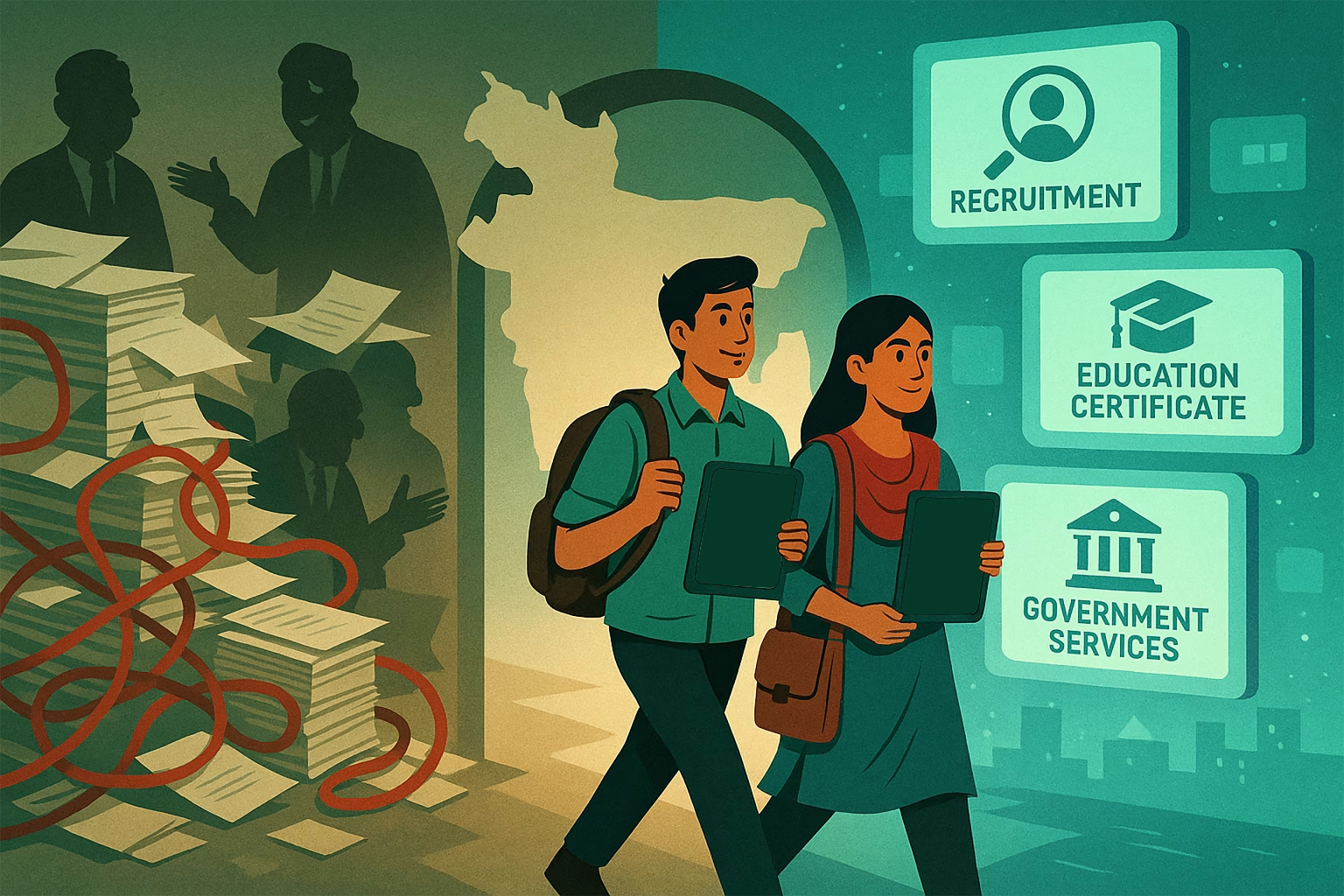Bangladesh is taking big steps to make public services digital. The aim is to cut red tape, improve transparency, and make life easier for citizens. After launching platforms like the online General Diary (GD) system and the Smart Land Service Delivery (SLSD) system last week, the government has now focused on two important areas: public sector recruitment and educational certificate verification. Both decisions were announced by the Chief Adviser’s Press Wing.
Faster and fairer recruitment
For many years, public sector recruitment in Bangladesh has been slow, full of errors, and affected by corruption. The Public Service Commission (PSC), which runs the Bangladesh Civil Service (BCS) exams, has often taken up to three years to complete the recruitment process. This includes everything from the preliminary exam to the final appointment.
Scandals, such as leaked exam questions and claims of favouritism, have made people lose trust in the system. Many talented young people have been discouraged from applying because of these problems.
To fix this, the government will introduce a fully automated digital recruitment system. The new system will make the hiring process faster and more transparent. It will also reduce mistakes and limit chances for cheating or unfair practices. Both cadre and non-cadre recruitment will follow a fully merit-based process. Everything will be monitored digitally from start to finish.
For millions of job seekers, this reform means a fair chance to get government jobs without corruption and will help create a stronger, more capable public sector workforce. Rifat Hossain, a young BCS aspirant from Dhaka, said, “Waiting years for results and worrying about leaks or favouritism has been stressful. If this digital system works as promised, it will give honest candidates a real chance to compete fairly.”
Digital certificate verification
The second reform focuses on verifying educational certificates for study or work abroad. The old system was slow, costly, and stressful. Students and workers often had to visit embassies and foreign authorities multiple times. This caused delays and extra expenses. Experts say Bangladesh could save at least Tk 700 crore each year if verification is done online.
Now, a fully digital certificate verification and Apostille system has been launched through the Ministry of Foreign Affairs. It will issue internationally recognised Apostille certificates for public documents, eliminating embassy visits, cutting fees, and preventing fraud. The new system makes verification faster, easier, and more secure, giving students and workers a smoother path to opportunities abroad.
A bigger digital push
These reforms are part of a larger effort to digitalise government services. As more services go online, citizens will have faster and safer access to important government functions.
For a country long affected by slow administrative processes, these digital changes could mark a new era. For citizens, these reforms promise a future where efficiency, fairness, and accountability take centre stage.


